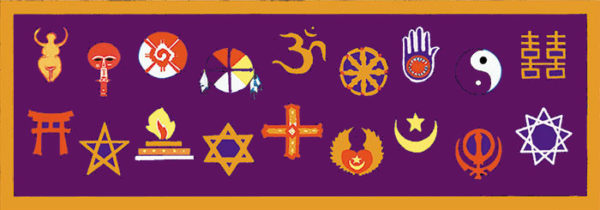What is Unitarian Universalism?
Our beliefs are diverse and inclusive. We have no shared creed. Instead, we have a shared Principles which support “the free and responsible search for truth and meaning.” Though Unitarianism and Universalism were both liberal Christian traditions, this responsible search has led us to an inclusive spirituality drawn from six sources, ranging from scriptural wisdom to personal experience to modern day heroes.
Unitarian Universalism includes religious pluralism: the accepting, celebrating, and learning from diverse faiths.

Unitarian Universalists themselves come from a variety of beliefs and backgrounds — all of whose perspectives add richness and growth to our ongoing spiritual development. Explore UU from the point of view of some these spiritual orientations:
History
Unitarian Universalism has existed as one denomination since the Universalists (UCA) and Unitarians (AUA) merged in 1961, creating our unique liberal religious denomination, the independent congregations of the Unitarian Universalist Association. Our Chalice and Flame symbol is a reflection of that merger.
Unitarianism and Universalism have been part of Christian thought since its inception… with one arguing the Unity of God (vs Trinitarian thought) and the other insisting that God was greater than human failure and evil, and would therefore take all back into (his/her) love. Our more recent history starts with the Protestant Reformation, wends its way through Poland, Transylvania, Spain and England, and landed in the American Colonies.
Unitarianism would evolve Christianity into an enlightenment faith with the spark of liberal ministers such as Rev. William E. Channing, and continue evolving with the influence of Ralph Waldo Emerson, Henry David Thoreau, Margaret Fuller and others in the Transcendentalism movement. Universalism followed a more Christian path following Hosea Ballou, but similar in openness in belief.
A further evolution happened when a number of Unitarian ministers and lay people (and some Universalist) embraced Humanism in the 1940’s. What Unitarianism and Universalism became were religious denominations without creed and dogma so individuals with differing sources could join in community around a central ethical and moral system guided by Principles showing how our beliefs should act in life and community.
Is Unitarian Universalism right for you? Learn more about who we are.
